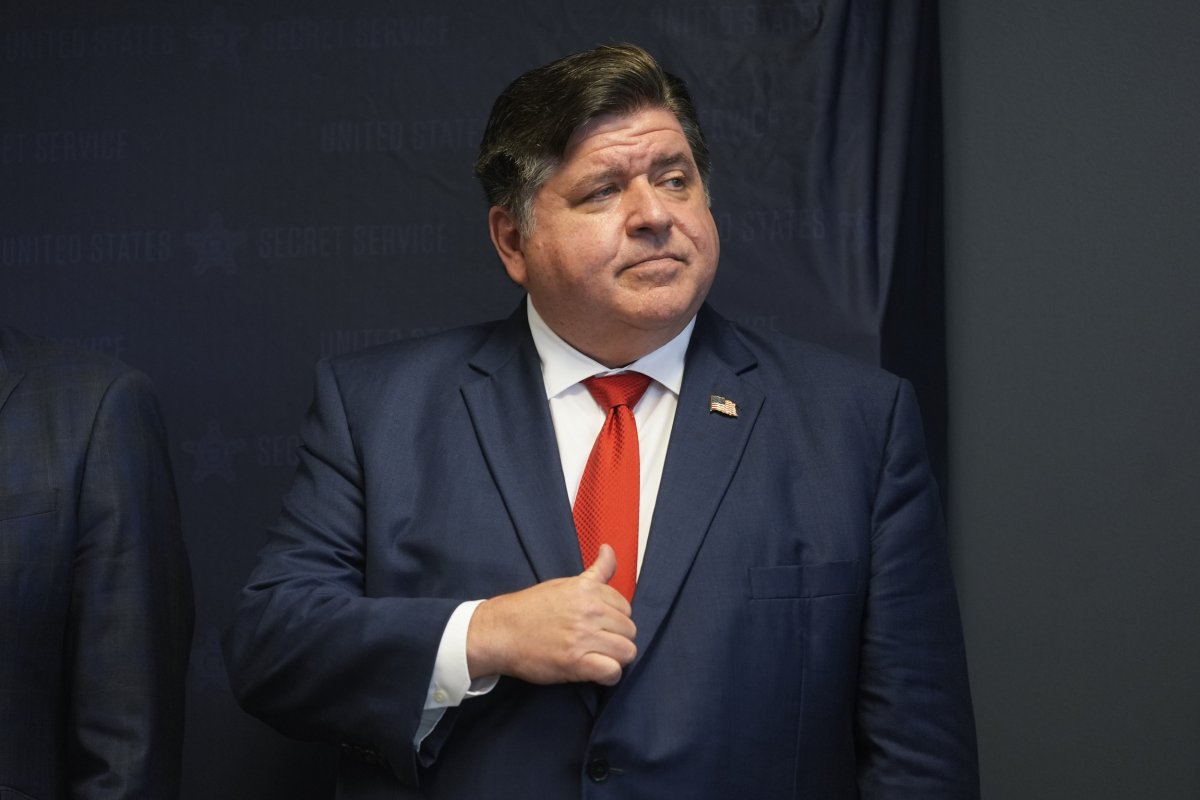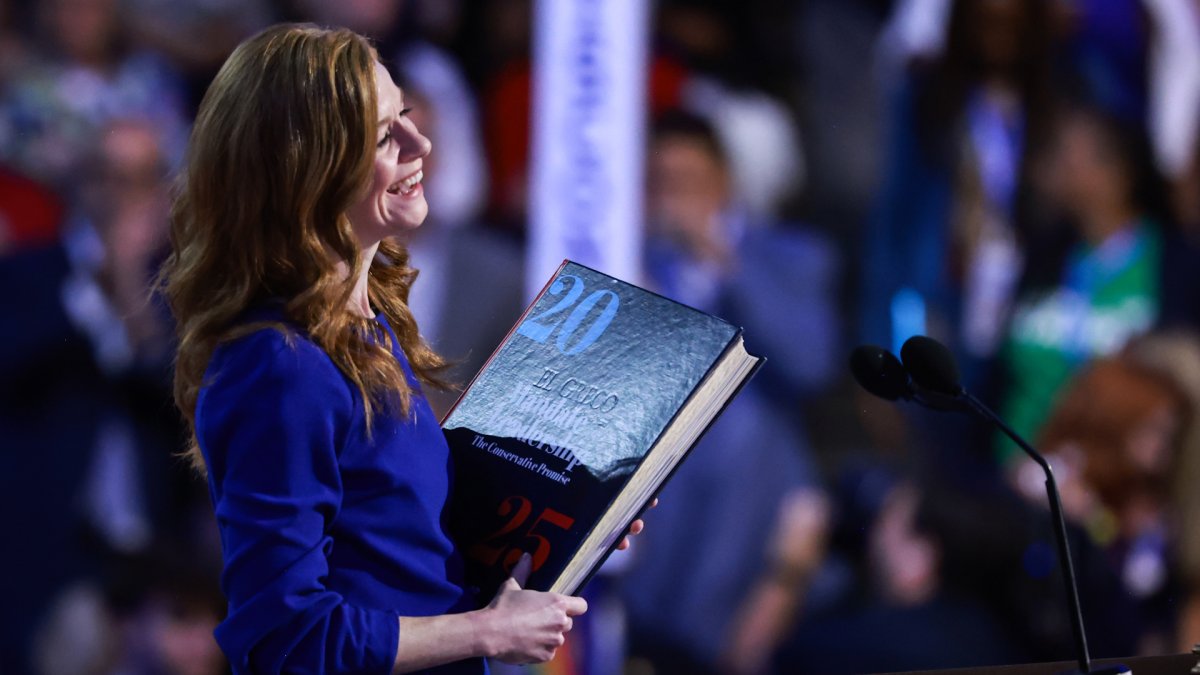America is less than three weeks into the second Trump administration, and Democratic leaders are still licking their wounds after an election that saw them lose both the White House and Senate.
Their voters, however, are ready for a fight.
Frustrated, angry and tired, liberals are on the hunt for their next shot-caller. The bar is low. Most are looking for almost anyone to just do or say just about anything that could signal some sign of life for the moribund party. Even some Republicans, like former Representative Adam Kinzinger, are urging Democratic leaders to “do something.”
While Democratic voters are begging their elected officials for some kind of concrete actions or ways to oppose the president, their representatives in Congress are being ridiculed over tone-deaf remarks and for “acting like everything is fine.”
“I’m sick and f—ing tired of our elected leaders pretending like everything is okay in the name of preserving comity,” Brad Bauman, principal at the Raben Group and the former executive director of the Congressional Progressive Caucus, told Newsweek.
“These folks need to start acting like everything is on the line because everything is truly on the line. Our democracy is on the line. Our way of life is on the line. Our economy is on the line. Lives are on the line. Everything is on the line.”
“If our elected officials aren’t acting like it, they can’t expect anyone else to act like it,” he added in a Thursday interview.
Bauman is not alone. Users across the left-leaning Bluesky social network have been expressing outrage at the Democratic Party’s relative silence in the face of President Trump’s swift upending of the federal bureaucracy.
On social media, Democrats are pleading for party leaders to start name-calling Republicans, to stop “being out of touch,” to get in front of the cameras about Trump’s policies and to offer more than the same “2 approved talking points.”
Much of that ire has been directed at Senate Minority leader Chuck Schumer, the party’s top elected leader, by name. A video clip in which Schumer, 84, leads a tepid chant of “We will win!” next to Rep. Maxine Waters, 86, as Rep. Al Green, 77, shakes his cane in the air, has gone viral across social media this week — reflecting what many progressives bemoan as the party’s “gerontocratic” leadership.
Newsweek reached out to Schumer’s office for comment.
Axios also reported Thursday that the offices of congressional Democrats were being inundated by a historically high volume of phone calls from angry constituents who don’t think their leaders are doing enough to stand up to Trump.
“We are in the middle of one of the most consequential and scary moments in American history, where Trump and his allies are remaking every single piece of our government by fiat, and Senate Democrats seem to be slapping each other on the backs for asking tough questions from the dais,” Bauman said.
“That simply is not meeting the moment with what it demands.”
The ‘Problem Pointer-Outers’
In Washington, Democrats have rallied outside of multiple federal agencies targeted for cuts by Elon Musk’s Department of Government Efficiency (DOGE), flooded the White House with letters demanding information and oversight and vowed to use a federal funding deadline a leverage over the administration.
But still, many think it’s not enough.
“I am perfectly capable of pointing out the problems,” Democratic strategist Keith Edwards told Newsweek. “We don’t need our senators and members of the House to do that. We don’t need any more problem pointer-outers. We need problem solvers. They are not spectators. They are they are gladiators in the arena, and we need them to fight.”
Fred Greaves/Getty Images
Doug Gordon, a Democratic strategist and co-founder of UpShift Strategies, urged his party’s leaders to “abandon the cautious, poll tested, talking point based way they have communicated for the last several years and match the urgency the moment requires.”
“People want to see action and fight,” Gordon told Newsweek on Wednesday. “In this moment, the actions Democrats take will speak much louder than the actual words they use. The status quo of sternly worded letters and Capitol Hill press conferences is not going to cut it. You can’t bring a knife to a gun fight.”
Democratic leadership appears to have been caught flat-footed by the speed and urgency at which the new administration is operating, Edwards said.
“Project 2025 was known about for years. So, why wasn’t anyone thinking, ‘Well just in case he wins, here’s our plan to stop it’?” the strategist asked.
“Donald Trump is not a new idea, and [Democrats] certainly had a roadmap for what he wanted to do when in office. For some reason, it seems like our leadership has been surprised that he’s doing what he said he was going to do.”
“We have a three-month lame-duck period, where [President Joe Biden was] still the president, but we know a new person is coming,” Edwards told Newsweek. “So, they had at least three months of knowing for sure that Donald Trump was going to become the president, and it seems like there was no plan put in place.”
Lakshya Jain, a political data analyst and co-founder of the election-modeling website Split Ticket, said that much of the Democratic response to Trump 2.0 has been to just sit back and let him dominate the headlines in hopes that his “flood the zone” strategy will backfire on him. Jain said that while pubic opinion could turn on Trump as a result of his own words and actions, as it did during his first term, that means Democrats would essentially be up to nothing for the next five months.
“They’re just sitting there looking to win, which is infuriating in the age of social media, because you want people doing stuff right now,” Jain told Newsweek.
Searching for the Next Obama
In some ways, Democrats have been here before. After John Kerry lost the 2004 election to former President George W. Bush, the party was devastated and widely considered to be in need a major rebuilding. It would have been difficult in February of 2005 to imagine Democrats’ fortunes would soon rise on the back of a little-known first-term senator from Illinois — who happened to be Black, with the middle name of Hussein.

Jim Rogash/WireImage
In politics, nothing is forever. But that is little solace for Democrats who see Trump operating with impunity and without some of the guardrails in place during his first term, when his administration was stocked with establishment Republicans who have all been jettisoned in favor of MAGA true believers this time around.
It’s increasingly clear—from conversations that Newsweek had with several Democratic strategists—that, like twenty years ago, the next face of the party is unlikely to be someone who is currently in its elected leadership ranks.
“When the party has no singular leader to coalesce around, what happens is you end up in this position where you have a whole bunch of very angry partisans who are sick and tired of seeing Donald Trump dominate the headlines, and to them, the party’s seem to be directionless,” Jain, of Split Ticket, said.
That leadership vacuum might have the effect of giving younger Democrats a chance to rise through the ranks. To be sure, there are some elected Democrats attempting to do just that. Among them, a billionaire governor, one of the nation’s leading gun reform advocates and a state senator who turned her viral speech into a $2.35 million boost in donations.
“If our elected leaders are not prepared to step up, show up and show the American people what we stand for, then they need to get out of the way and let another group of folks do it,” said Bauman, the former Congressional Progressive Caucus chief.
The Names Making Noise
At the top of Bauman’s person list is newly-elected Democratic National Committee Chair Ken Martin, who he says “hears [the] message” that voters are sending.

AP Photo/Rod Lamkey, Jr.
Martin, who has spent 14 years leading the Minnesota party and eight years as a DNC vice chair, promised Democrats in his Saturday acceptance speech, “We’re going to get to work. We’re going to go out there and take this fight to Donald Trump.”
Bauman is also hopeful that Artie Blanco, Malcolm Kenyatta and Jane Kleeb, who all won DNC leadership posts over the weekend, understand that the party needs to provide state and local resources more than anything else.
There’s also a handful of Democratic governors who appear to be ready to emerge as the voice that the party is searching for. Illinois Governor J.B. Pritzker, for example, spent last weekend weekend bashing Trump on MSNBC and putting himself at the forefront of the so-called “resistance.”

Erin Hooley/AP Photo, file
Asked about how he’s handling Trump’s retaliatory moves against blue states and cities, such as cutting off federal funding for sanctuary cities, Pritzker, who is an heir to Hyatt hotel fortune, said, “I’m not afraid. And none of us should be afraid. We should be standing up, speaking out. We should be very clear about our messaging. And very importantly, Donald Trump is attacking working families. We are the front lines of protecting working families. We governors, right? Because we’re delivering the services that people need in the states.”
Less than a week after those remarks, Trump’s Department of Justice filed a lawsuit against the state of Illinois for allegedly interfering with federal immigration enforcement. Nonetheless, Pritzker’s stance has earned him praise from Democrats who say he’s “showing signs of rising to the moment.” They also underscore a point Bauman made about the Democrats’ power at the state level.
“That’s where there is the brightest spot in the Democratic Party right now,” Bauman said. “We actually do have a pretty deep bench of really A-class governors, with Gretchen Whitmer at the very, very tippy top of that list.”

Photo by PG/Bauer-Griffin/GC Images
Whitmer, who was re-elected as the governor of Michigan against a Trump-backed candidate in 2022, remains popular in her state. In the last two weeks, she’s been outspoken against Trump’s proposed tariffs on Canada, which experts say could devastate Michigan’s auto industry.
“Governor Whitmer is a vastly underestimated leader in the Democratic Party and the people of Michigan are very lucky to have her,” Mike Nellis, a Democratic strategist and former senior adviser to Vice President Kamala Harris, wrote on Bluesky Wednesday. “This is also a very high approval rating for a battleground state Governor—well deserved.”
Senator Chris Murphy of Connecticut is also currying favor among liberals. Murphy, who has been a vocal gun reform advocate and often speaks of the nation’s “spiritual crisis” of loneliness, has been reacting to the latest Trump moves in real time with his social media followers, going live to give his two cents just about every time there’s a new development from the White House.
“Chris Murphy has been stepping up for sure,” Edwards, the strategist, said in a Tuesday interview. “God bless him. The man went on Instagram live a couple days ago, and he’s trying stuff.”
Representative Alexandria Ocasio-Cortez of New York has also successfully used her vast online network to drum up engagement among exasperated young Democratic voters. The progressive congresswoman regularly goes live to answer questions from constituents on Instagram. During her Monday livestream, she struck a tone that many progressives have been asking for.
“We have to stop playing nice in the Senate and block every damn thing that we can,” Ocasio-Cortez said while urging Senate Democrats to block Trump’s nominees. She added that the party should make the GOP “fight for every single step. The slower they go, the less they can break.”
There are lesser-known Democrats gaining traction, too. One seasoned campaign manager pointed Newsweek to Michigan State Senator Mallory McMorrow, who he called a rising star with “a common-sense, no bulls–t approach that cuts through noise” in a way that “inspires people.”

Getty Images
McMorrow made headlines in 2022 after she gave a viral speech defending herself against unfounded attacks from a Republican rival who accused her of being a “groomer.” She spoke on the opening day of the Democratic National Convention in August.
The political strategist, who has advised several Democratic senators in the past, said McMorrow was a much-needed voice that countered those like Representative Jasmine Crockett and newly-elected DNC Vice Chair David Hogg — two younger progressives who he said don’t “speak to larger swaths of the party” and often come across as “antagonistic.”
The Elusive ‘Rogan of the Left’
Finding their voice is one thing. Figuring out how to communicate that voice to large swaths of the country, in an era of fractured attention spans and crumbling trust in media, is quite another.
In the wake of Trump’s decisive victory, after he and Vice President J.D. Vance eschewed much of the mainstream media in favor of popular male-leaning podcasts hosted by figures Joe Rogan and Theo Vonn, some liberals wondered if their party had, or would ever have, their “own Rogan.”
“It doesn’t matter what we say, because nobody in America actually hears it,” Bauman said. “Nobody hears from us. We don’t have the pathways to talk to people. We don’t have the infrastructure set up to ensure that the message gets out.”
“Quite frankly, we could yell whatever we want from the hills, but if our party isn’t in a position to communicate it in places like West Virginia, Kentucky, Georgia, Alabama, Mississippi, Missouri, does it matter? No, it doesn’t,” he said.
“And we will always be relegated to being a second tier non-National party.”




